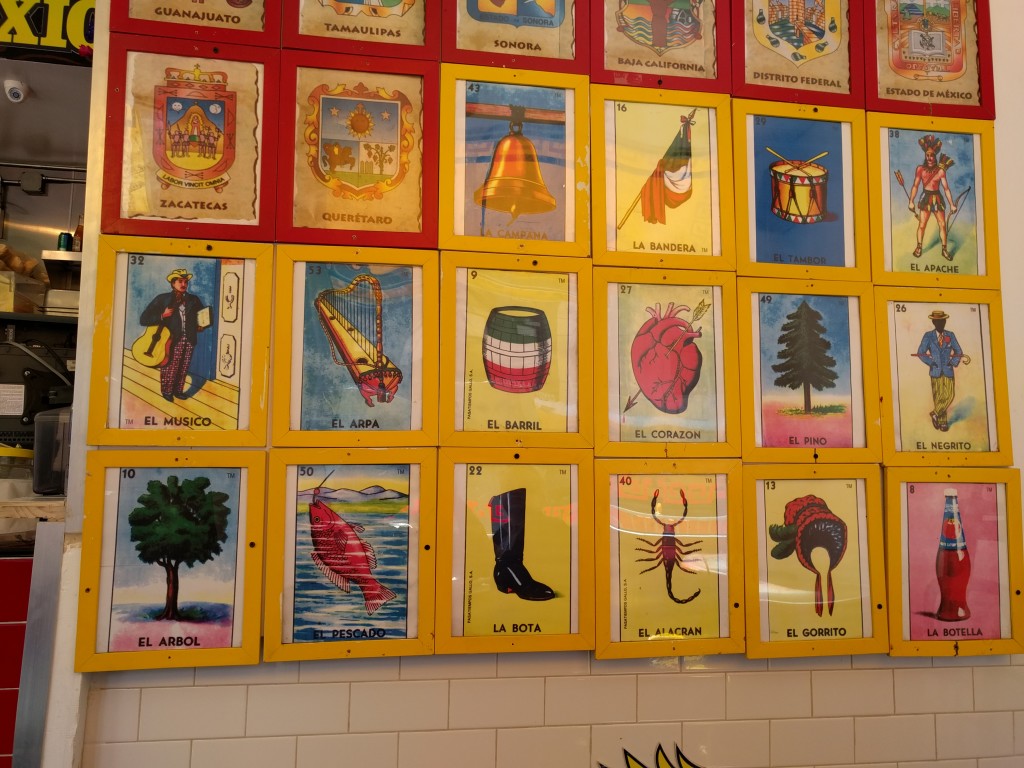One of my favorite “fun facts” about Spanish is that it has two words for ‘fish’: pez, for a live fish, and pescado, for fish that is food, as in a restaurant or a fish market. Pez is a direct descendant of the Latin word pisces. Pescado is the past participle of the verb pescar ‘to fish’, and literally means ‘fished’; it’s fish that has been fished, or caught.
I was reminded of this word pair yesterday, when my husband and I had breakfast in Spanish Harlem, at a corner taquería, or centro de comida, called El Águila. The wall near our table was decorated with reproductions of Mexican state seals and lotería cards, which are used in a variety of bingo-like games as well as fortune-telling. Two of the lotería images caught my eye: “El Negrito” (next-to-last row, furthest right), because it’s so dated, and also “El Pescado” (bottom row, second from left, also see close-up).


Since the fish is still in the water, and is still alive, I thought it would be labeled pez. Instead, the lotería card apparently captures the “decisive moment” in which the poor pez becomes a pescado. Once it’s on the hook, there is no turning back.
The taquería’s name, El Águila, is itself of linguistic interest. First, águila is one of those feminine Spanish nouns that take a masculine article (el) in the singular to stop the a of the feminine article la from blending in with the initial a of the noun, as it does (legitimately) in Italian words like l’amica (from la amica). Second, the taquería itself and its website are missing the accent mark in Águila. This illustrates the common, though technically incorrect, tendency to omit accent marks on capital letters.